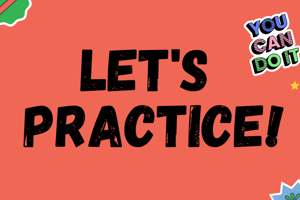Podcast
Questions and Answers
What is the correct form of the 2nd conditional structure?
What is the correct form of the 2nd conditional structure?
- If + past simple verb, would + base form of verb. (correct)
- If + present continuous verb, will + base form of verb.
- If + present simple verb, would + base form of verb.
- If + past simple verb, would + past participle.
Which of the following is an example of using the 2nd conditional to express a regret?
Which of the following is an example of using the 2nd conditional to express a regret?
- If I had a car, I would drive to work.
- If I had studied harder, I would have passed the exam. (correct)
- If it rains tomorrow, I will stay home.
- If I were you, I would ask for a raise.
Which option illustrates a common mistake when using the 2nd conditional?
Which option illustrates a common mistake when using the 2nd conditional?
- If it rained, I would have canceled the picnic. (correct)
- If he were a better cook, he would open a restaurant.
- If I had more money, I would buy a new car.
- If I were a millionaire, I would travel the world.
How does the 2nd conditional differ from the 1st conditional?
How does the 2nd conditional differ from the 1st conditional?
Which sentence correctly uses the 2nd conditional?
Which sentence correctly uses the 2nd conditional?
What is a proper way to phrase a suggestion using the 2nd conditional?
What is a proper way to phrase a suggestion using the 2nd conditional?
Which of the following sentences is an incorrect use of 'would' in the 2nd conditional?
Which of the following sentences is an incorrect use of 'would' in the 2nd conditional?
Which of the following correctly completes the sentence: If I _______ (have) a different job, I _______ (be) happier?
Which of the following correctly completes the sentence: If I _______ (have) a different job, I _______ (be) happier?
Flashcards
2nd Conditional Form
2nd Conditional Form
Describes unreal or improbable situations in the present or future. Uses 'if' + past simple, followed by 'would/could/might' + base form of verb.
2nd Conditional - Unreal Situations
2nd Conditional - Unreal Situations
Expresses situations not likely to happen in the present or future, or hypothetical situations.
'Were' instead of 'was'
'Were' instead of 'was'
In the "if" clause of 2nd conditional, 'were' is often used instead of 'was' when referring to 'I', 'he', 'she', or 'it'.
2nd vs 1st Conditional
2nd vs 1st Conditional
Signup and view all the flashcards
2nd Conditional - Mistake: tense
2nd Conditional - Mistake: tense
Signup and view all the flashcards
Common Mistake: real vs hypothetical
Common Mistake: real vs hypothetical
Signup and view all the flashcards
2nd Conditional - Regret
2nd Conditional - Regret
Signup and view all the flashcards
2nd Conditional - Recommendations
2nd Conditional - Recommendations
Signup and view all the flashcards
Study Notes
2nd Conditional: Form and Structure
- The 2nd conditional describes unreal or improbable situations in the present or future.
- Form: If + past simple verb, [would/could/might] + base form of verb.
- Example: If I won the lottery, I would buy a house.
- Note: "Were" is often used instead of "was" for the "if" clause when referring to I, he, she, or it, though "was" is grammatically correct in this situation.
Usage Examples
- Hypothetical situations: If I had more time, I would travel the world.
- Imaginary situations: If I were a bird, I would fly to the moon.
- Suggestions or recommendations: If I were you, I would take classes.
- Expressing regrets: If I had studied harder, I would have passed the exam.
- Unlikely future situations: If it rained tomorrow, the picnic would be cancelled.
- Contrasting reality with an imagined possibility: I'd be happier if I had more free time.
Common Mistakes
- Incorrect use of tense: Using present tense or future tense with "would". Focus on using past simple and "would/could/might" in the second clause.
- Confusing with real-life possibilities: Avoid using the 2nd conditional for likely or possible situations.
- Mixing it up with the 1st conditional: Crucial differentiation in the imagined scenario—a difference in likelihood.
- Forgetting the "would" or using "will" incorrectly.
Practice Exercises
- Fill in the blanks: If I _______ (have) more money, I _______ (travel) the world.
- Rewrite the sentences: I am unhappy with my job. --> If I _______ (have) a different job, I _______(be) happier.
- Make your own sentences: Create three sentences using the 2nd conditional structure—one about winning the lottery, one about a different career choice, one about a hypothetical event.
Comparison with 1st Conditional
- 1st Conditional: Expressed about real possibilities in the near future: if it rains, we will stay inside.
- 2nd Conditional: Presents an unreal or unlikely situation in the present or future.
- Key difference: Focus on the difference between potential/likely situations vs. hypothetical/unreal situations.
Studying That Suits You
Use AI to generate personalized quizzes and flashcards to suit your learning preferences.



